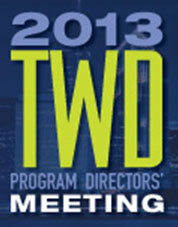We are constantly seeking new ways to foster the development of a diverse and inclusive biomedical research workforce. One notable example is our partnership with the National Science Foundation (NSF) and the Department of Energy (DOE) to support a series of workshops on increasing diversity in chemistry departments.
The workshops focused on disability equity, racial and ethnic equity and gender equity. The organizing committees and workshop participants, mostly chemistry department chairs, felt that progress was made during each workshop. However, the insights and good intentions engendered by such meetings can have an all too high vapor pressure and gains can be lost. Enter OXIDE.
OXIDE, which stands for the Open Chemistry Collaborative in Diversity Equity, is a 5-year grant effort co-funded by NIGMS, NSF and DOE to address multiple areas of diversity, including gender, race-ethnicity, disability and sexual orientation. With the desire to keep the momentum gained from the previous workshops, OXIDE seeks to maintain a connection among the chairs of chemistry departments and partner with social scientists to take advantage of their findings.
OXIDE’s recurring National Diversity Equity Workshops facilitate discussion among these groups on the latest diversity research and its implications for chemistry departments. The next workshop, which is open primarily to chairs or thought leaders of the leading research-active chemistry departments, will be held April 15-16, 2013, in Arlington, Virginia. Presentation slides will be archived on the Oxide Web site.
OXIDE also partners with the American Chemical Society’s Chemical & Engineering News to conduct and publish annual faculty demographic assessments of more than 75 research-active chemistry departments, allowing for longitudinal examination of data trends.
Perhaps most importantly, OXIDE embodies the commitment of the chemistry community, NIGMS and other federal agencies to advancing diversity and inclusion. Its approaches—and findings—might be useful to other scientific communities.


 A goal of our Division of Training, Workforce Development, and Diversity (TWD) is to create a community of trainers and educators dedicated to developing a well-prepared, diverse biomedical research workforce.
A goal of our Division of Training, Workforce Development, and Diversity (TWD) is to create a community of trainers and educators dedicated to developing a well-prepared, diverse biomedical research workforce.